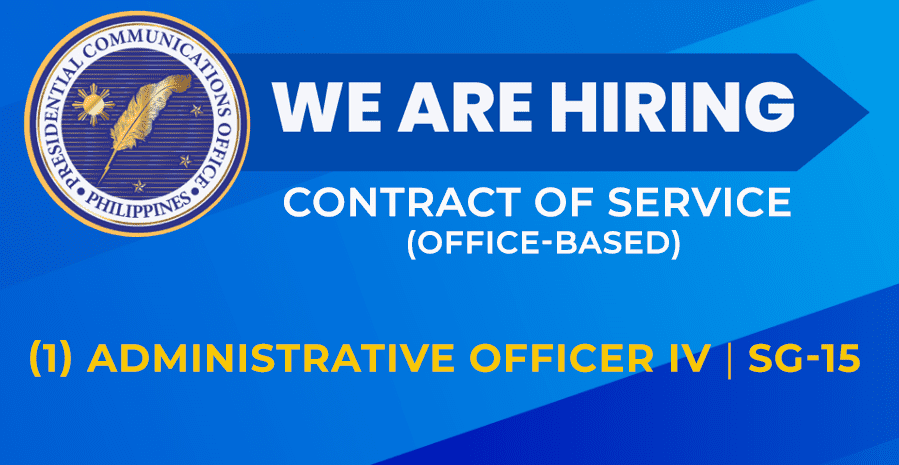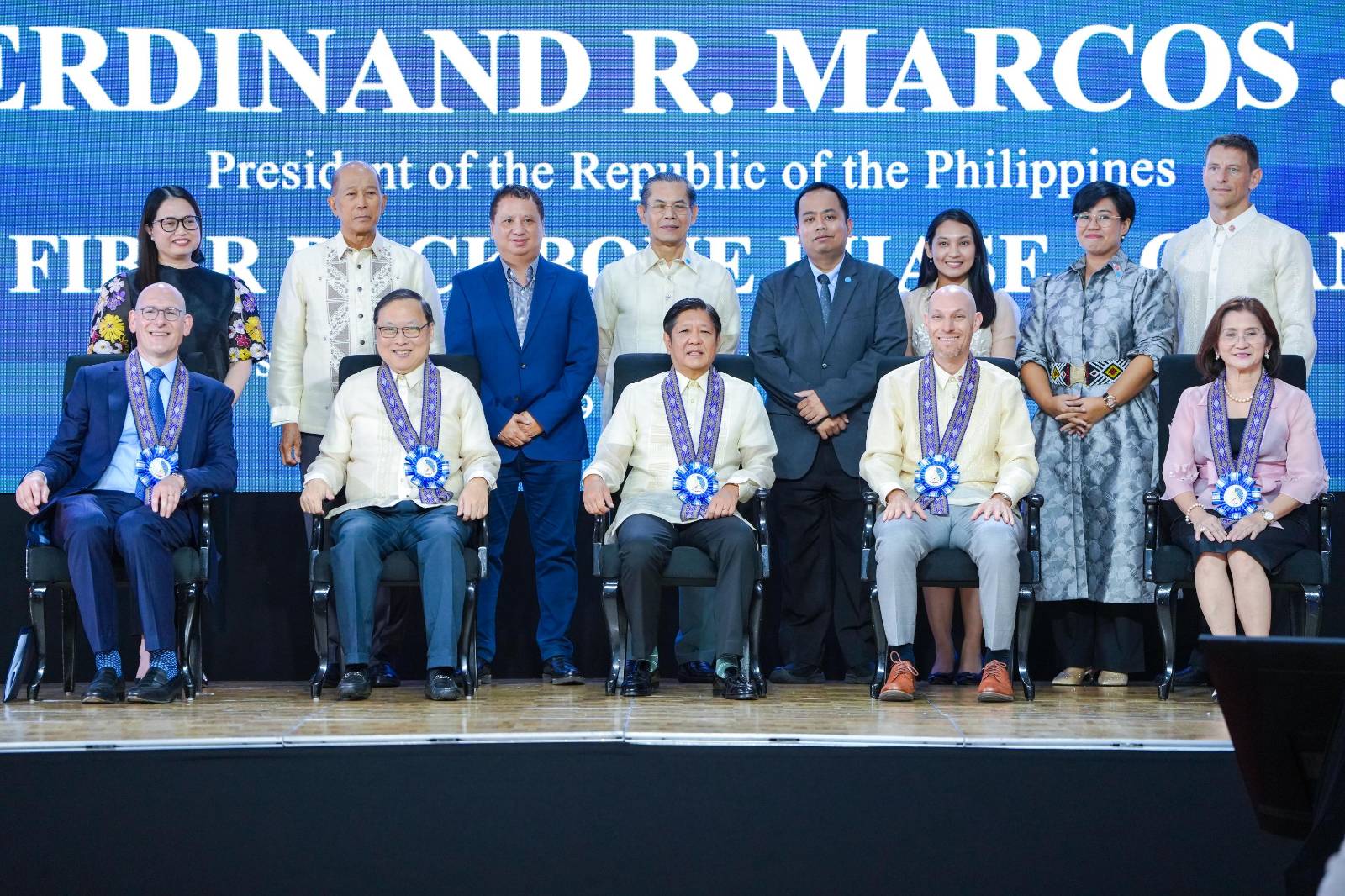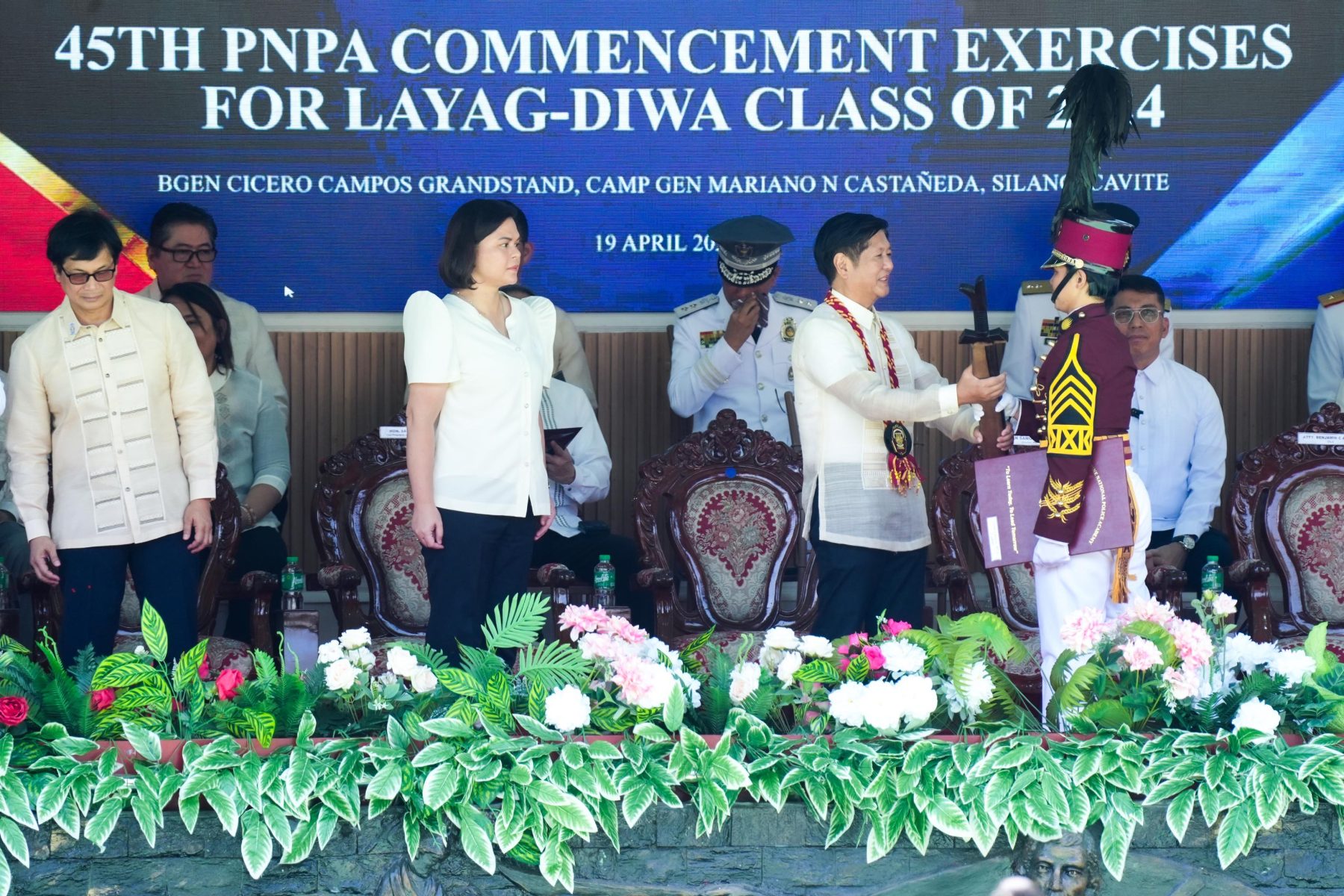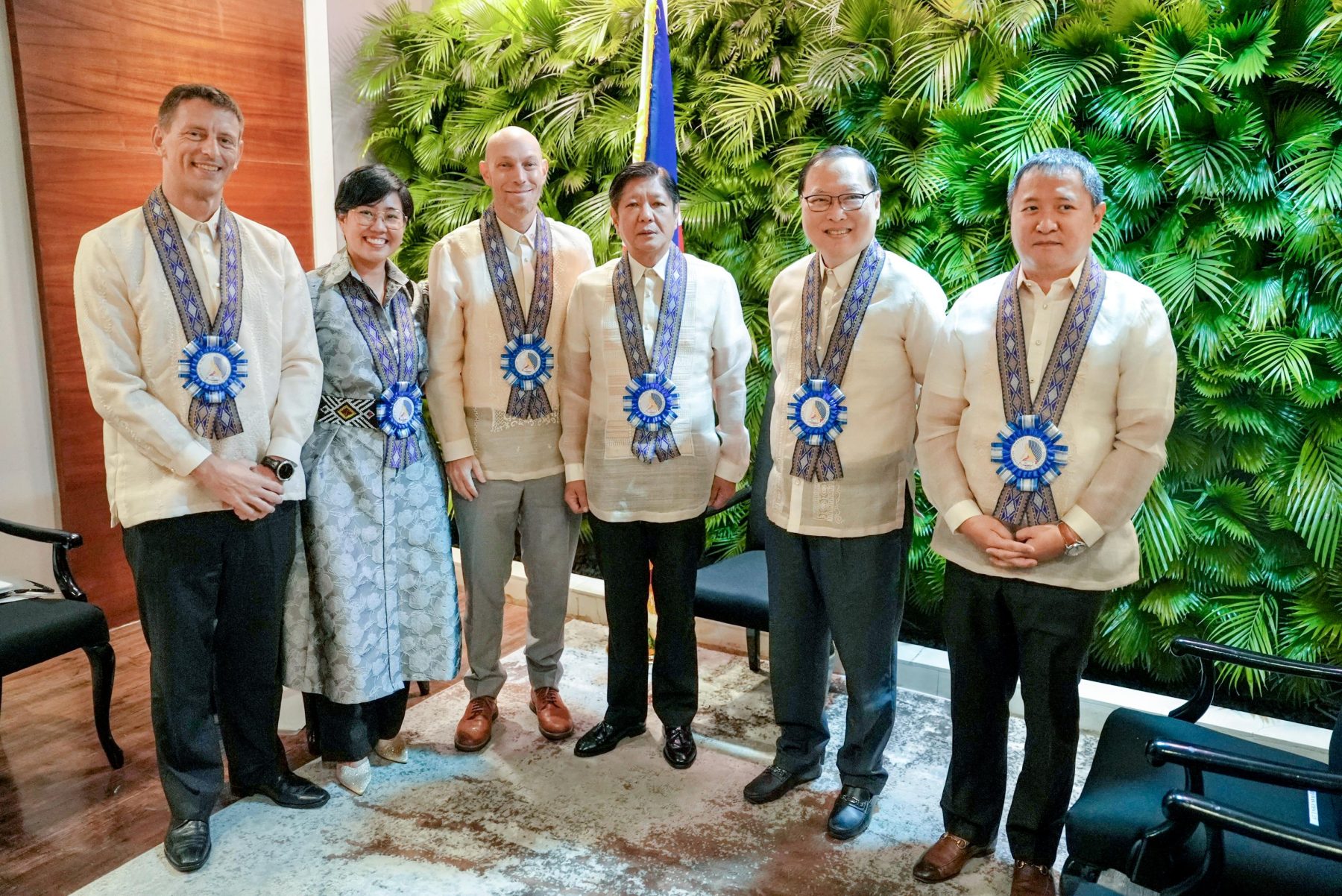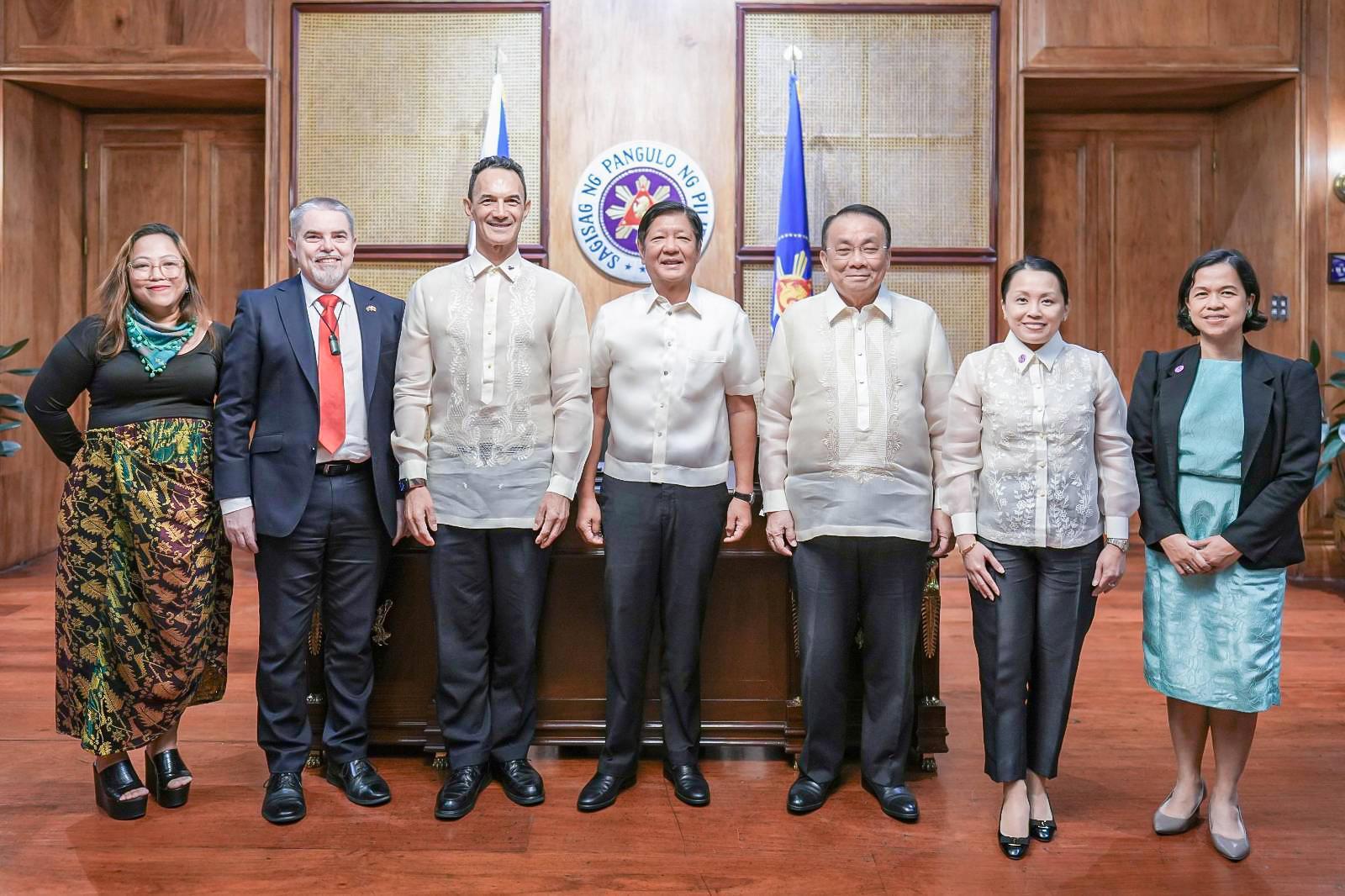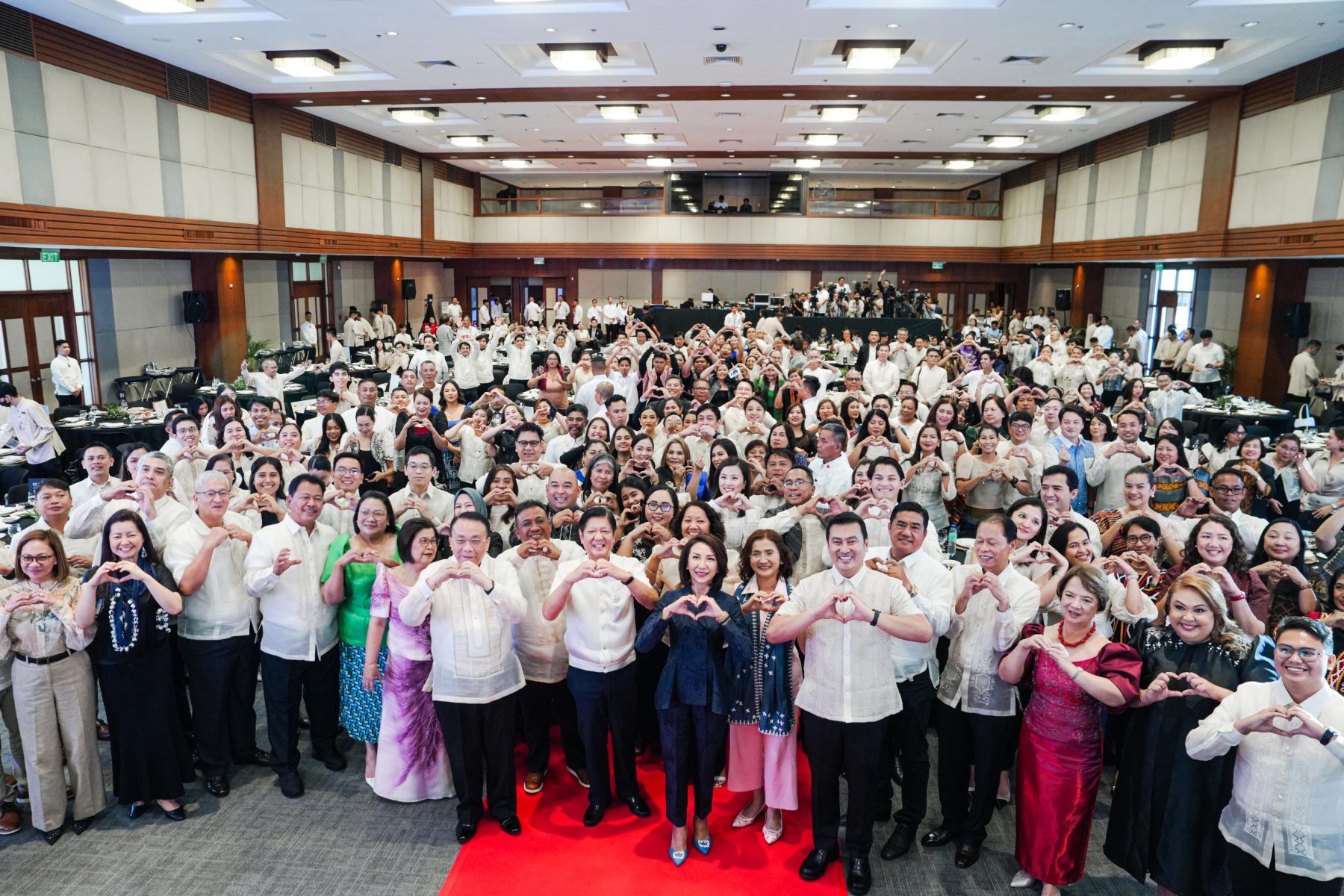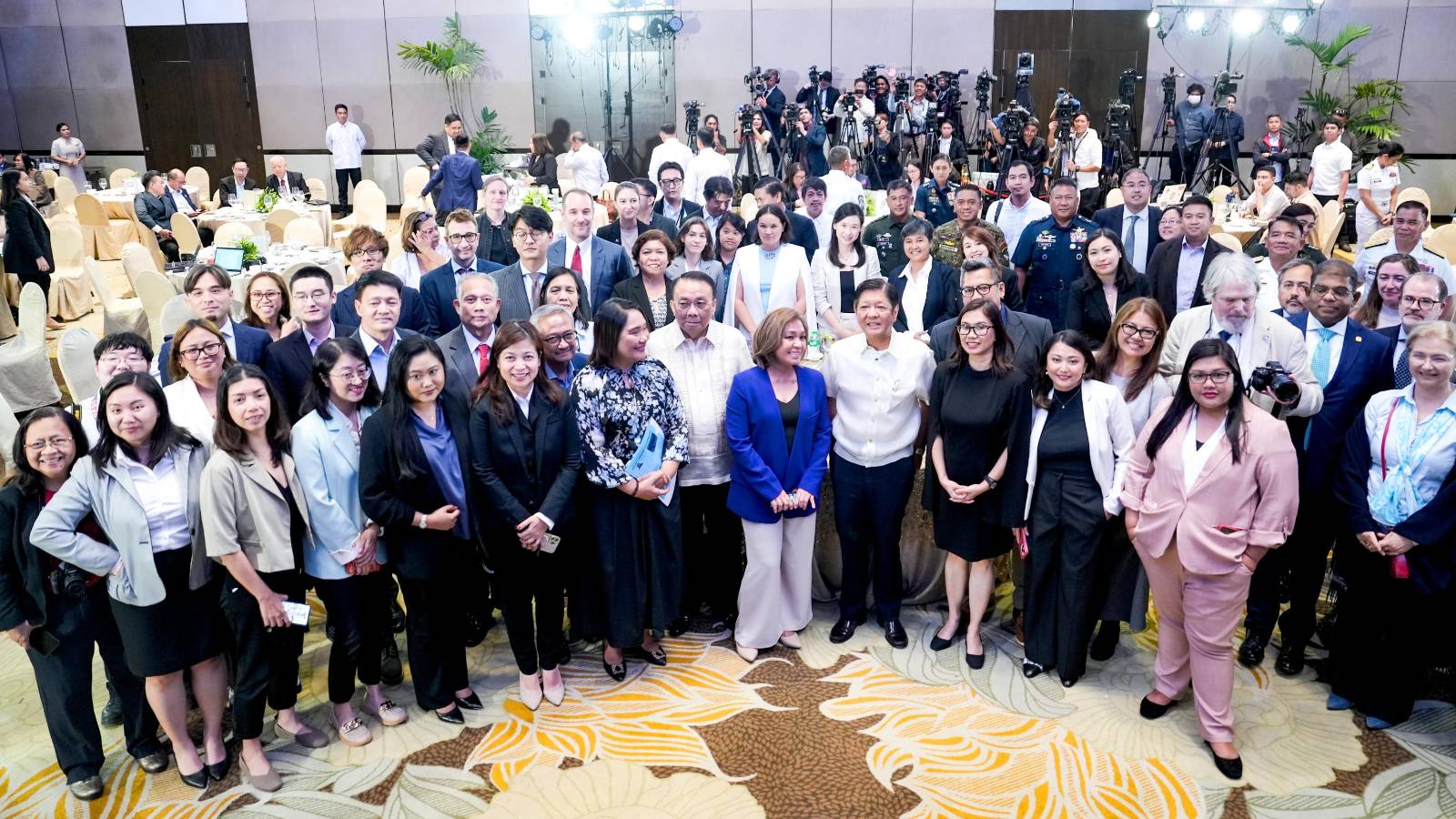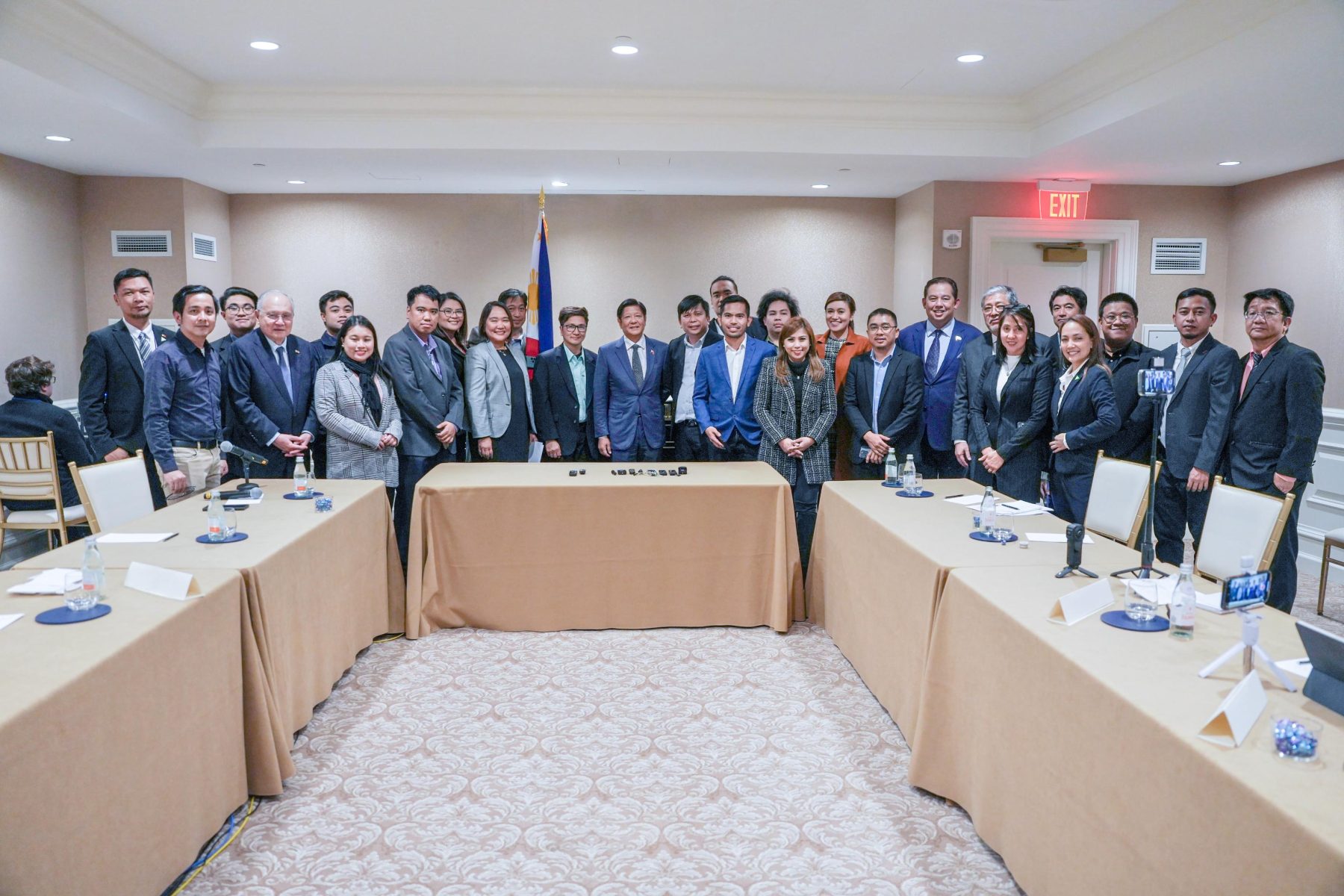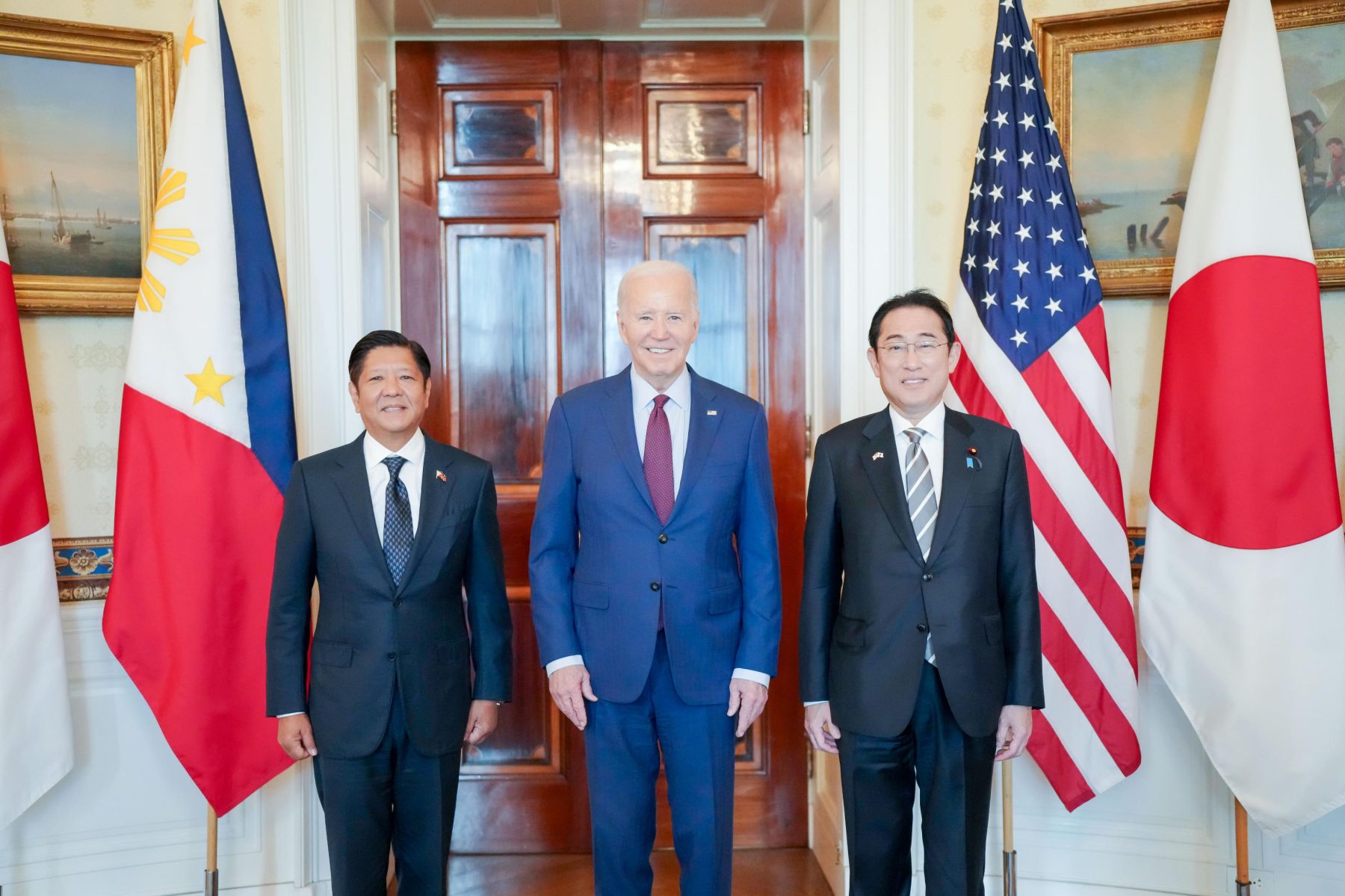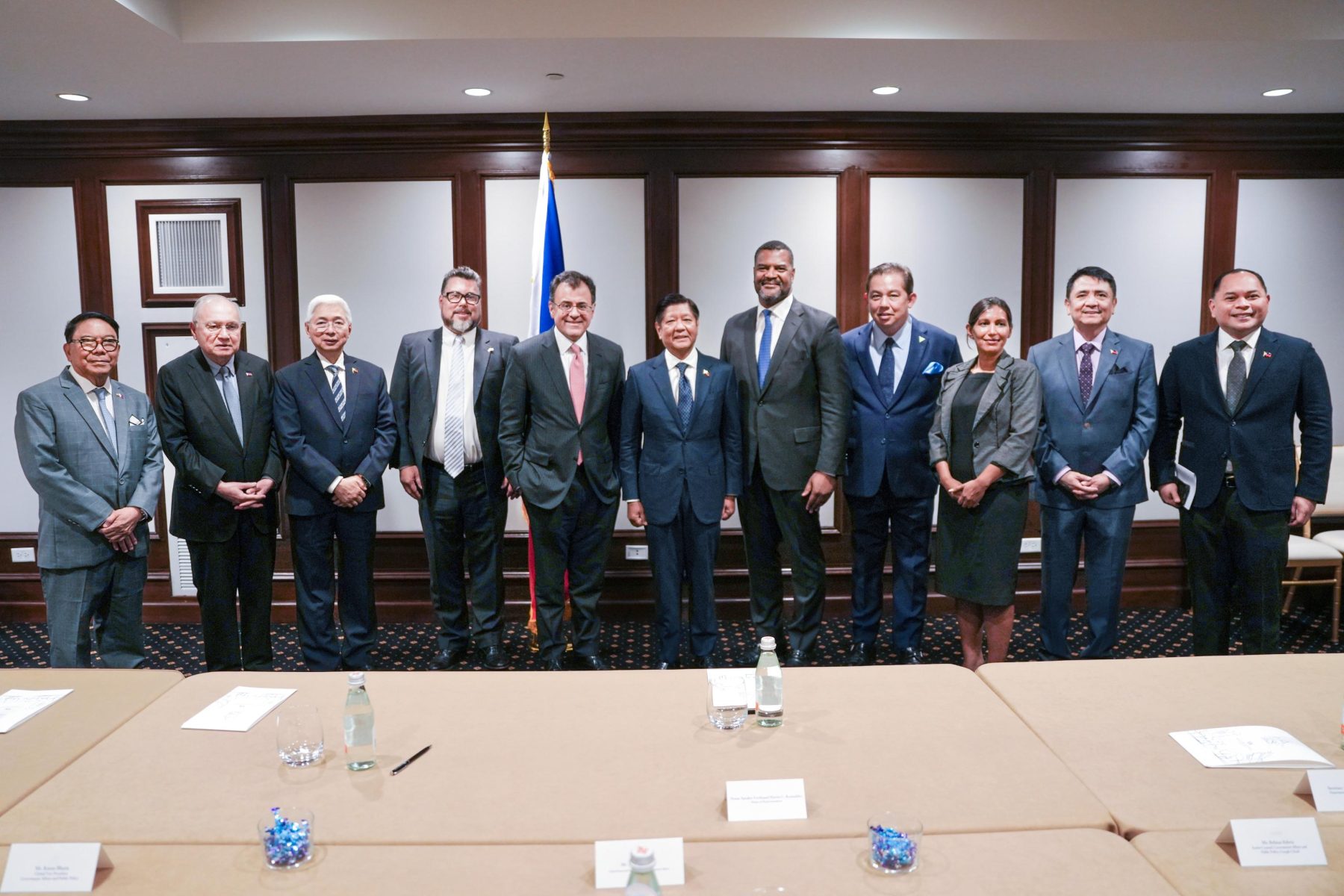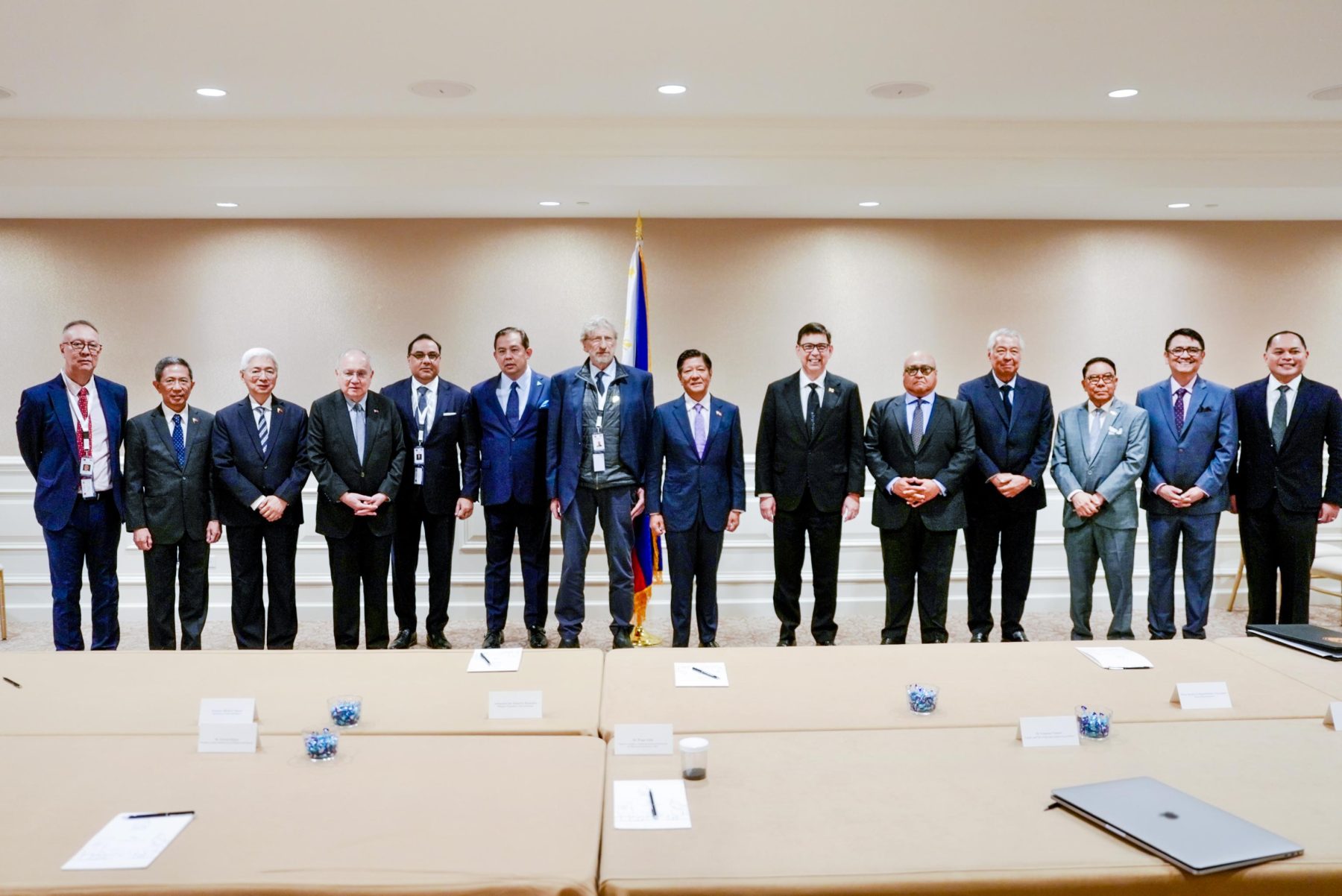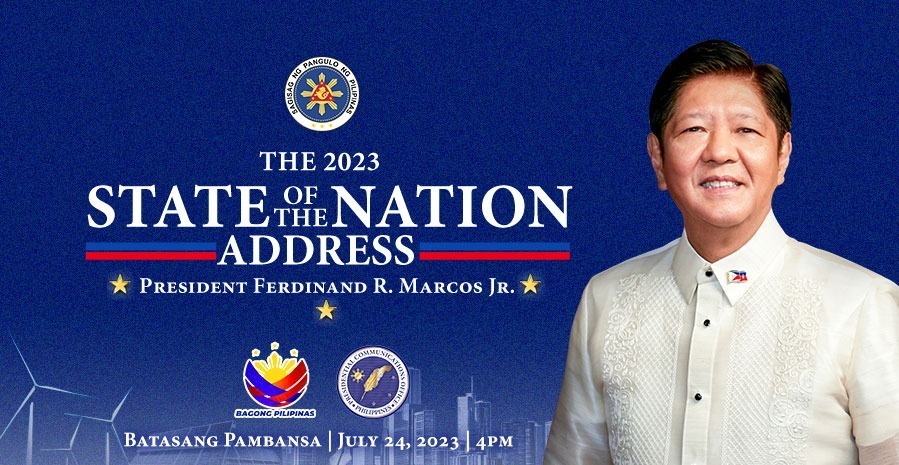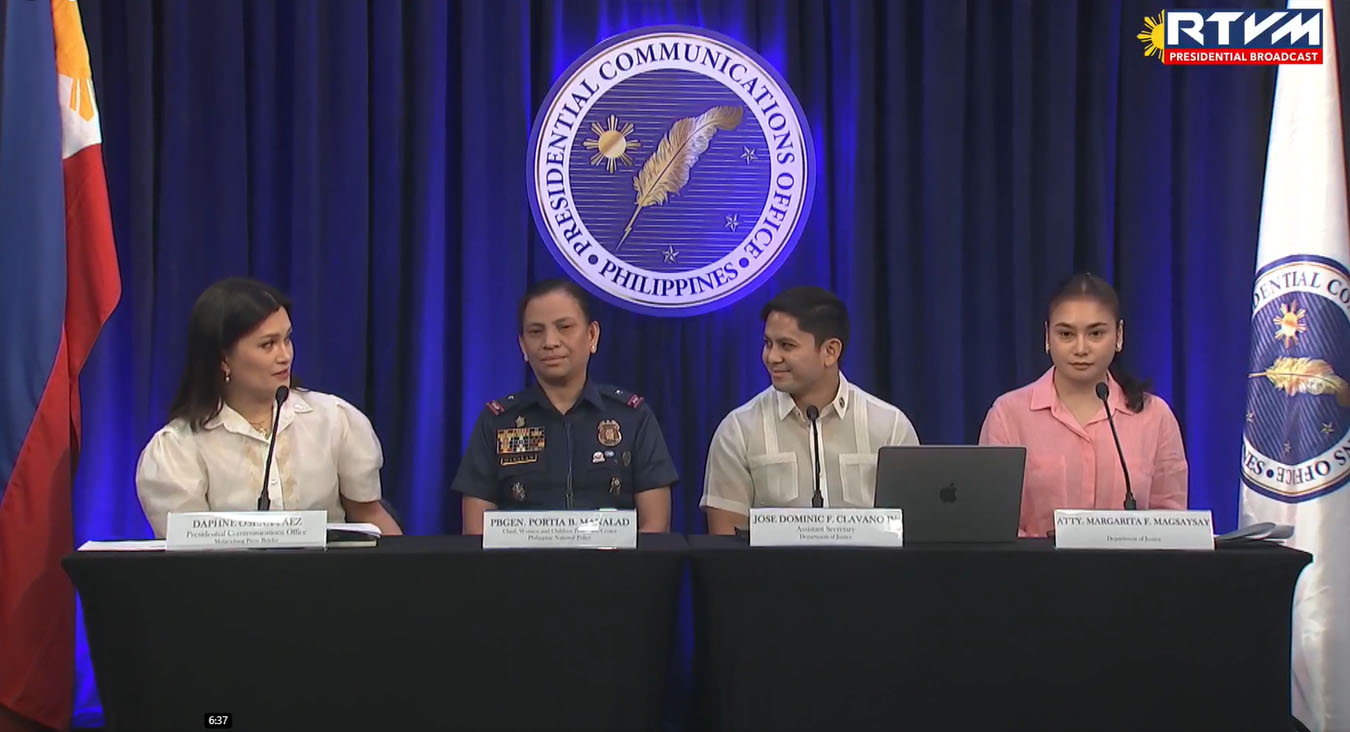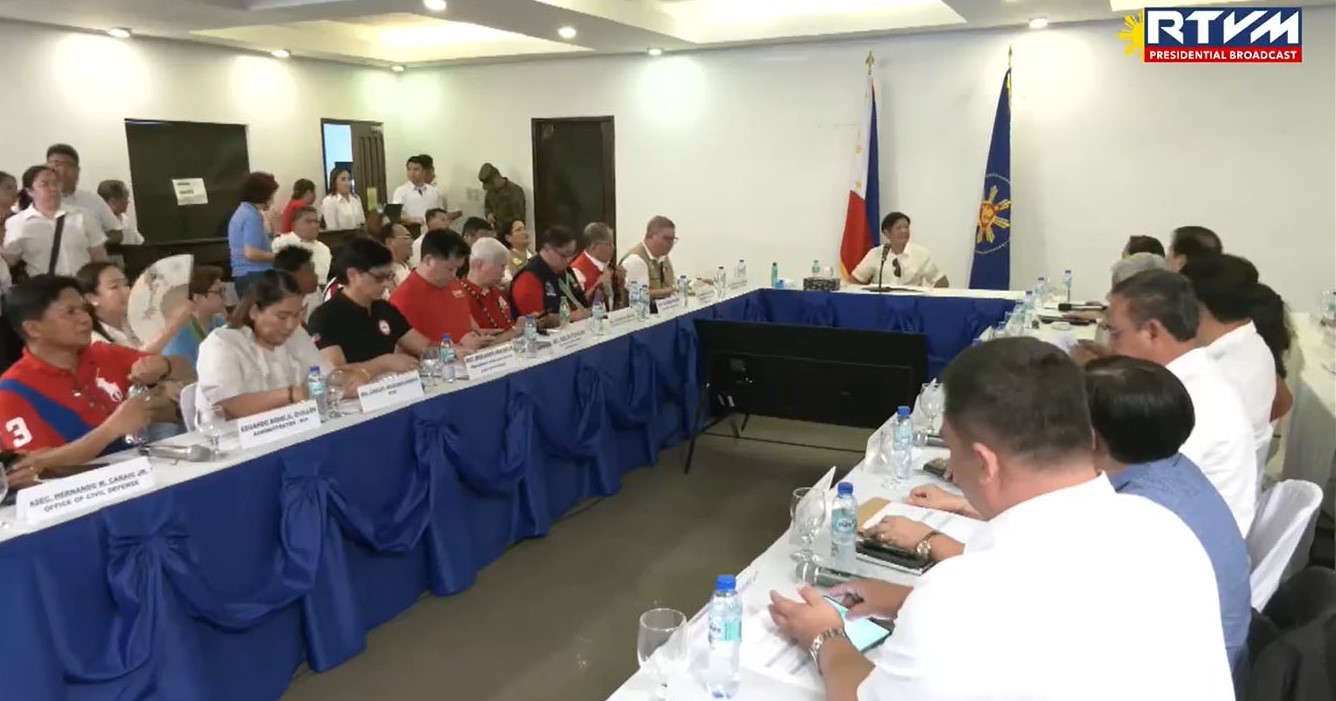September 12, 2015 – News Releases
 |
| 12 September 2015 |
APEC News Release |
|
|
| Palace official bares MMDA measures to ease traffic |
| The Metro Manila Development Authority has come up with resolutions to solve the traffic woes of commuters and motorists in the metropolis, a Palace official said on Saturday.Deputy Presidential Spokesperson Abigail Valte said some of the measures to be implemented this month by the MMDA concerns restrictions of provincial buses and a truck ban.
“Provincial buses will no longer be allowed doon sa mga underpasses sa EDSA, so i-ko-confine na lang po sila doon sa mga yellow lane. This will take effect immediately,” said Valte during an interview with DZRB. “Tungkol naman po doon sa truck ban that will be effective on September 15, 2015. The truck ban hour shall be from 6:00 a.m. to 10:00 a.m. and at 5:00 p.m. to 10:00 p.m. everyday except Sundays and holidays. Mayroon naman itong exemption katulad ng ang northern truck route where allowable period will still be 24 hours subject to several prohibited dates,” Valte added. “Tinutulungan din po lang natin ang MMDA na ipalabas itong impormasyon para mas madali itong ma-implement naman,” she further said. President Aquino has named Cabinet Secretary Jose Rene Almendras as head of an inter-agency task force tasked to coordinate government action to solve the traffic problem in Metro Manila. PND (jm) |
|
|
| No Filipino involved in Mecca Grand Mosque tragedy—Palace |
| No Filipino Muslim has so far been reported injured or killed in a tragic crane accident Friday at the Mecca Grand Mosque in Saudi Arabia ahead of the annual Hajj, Malacañang said Saturday.
The Department of Foreign Affairs’ Philippine Consulate General in Jeddah confirmed this report, Deputy Presidential Spokesperson Abigail Valte told reporters over the state-run Radyo ng Bayan. “As of today, wala naman pong report so far tungkol sa mga Pilipinong nadamay o nasaktan doon sa naging aksidente sa Mecca,” Valte said, hoping that this situation remains unchanged. Valte, nevertheless, said our Consulate General would keep an eye out for Filipinos who might be caught up in the mishap eventually to provide them necessary assistance. Malacañang also extended its condolences to the families of those who perished in the disaster, which already reached 107, according to reports, on top of the 238 who sustained injuries. “Patuloy ho ang pagbabantay ng ating Consulate General doon para kung sakaling (may nadamay nga), huwag naman po sana, at nakikiramay din po tayo doon sa mga pamilya ng nadamay doon sa naging aksidente roon,” Valte said. Authorities in Saudi Arabia blamed tempestuous winds and heavy rains for the crane’s collapse, which tore the mosque’s ceiling, crushing several worshippers in the process. The incident happened two weeks before the Hajj, an annual Islamic pilgrimage to the Mecca, that physically and financially capable Muslims are expected to carry out at least once in their lifetime. PND (hdc) |
|
|
| PHL Embassy in Japan to continue providing assistance to flood-stricken Filipinos |
| The Philippine Embassy in Tokyo will continue rendering assistance to flood-stricken Filipinos in communities affected by devastating floods that hit eastern Japan earlier this week until they get back on their feet.
Deputy Presidential Spokesperson Abigail Valte also noted that 15 Filipinos who asked to be evacuated were already under the care of the Philippine Embassy, as reported by Ambassador Manuel Lopez. “Our assistance is continually provided to them until such time na makabalik po sila at mag-normalize ang sitwasyon doon sa kanilang mga komunidad,” Valte told Radyo ng Bayan, Saturday. Thousands of people fled their homes in the town of Joso, which is about 60 kilometers outside of Tokyo, after torrential rains brought by Typhoon Etau caused the Kinugawa River to overflow inundating the entire community. Three people were confirmed killed in the disaster, according to reports, while 15 others remained missing. Broadcast footages showing homes and cars being swept like toys by raging water made viewers compare the extent of the flood’s damage to properties to the tsunami that engulfed Japan in 2011. PND (hdc) |
|
|
| Trade and Industry Secretary Domingo resigns, Palace confirms |
| Department of Trade and Industry (DTI) Secretary Gregory Domingo has quit the Cabinet, Malacañang confirmed, but President Benigno S. Aquino III is yet to respond on the matter.
Communications Secretary Herminio Coloma, Jr. relayed the information to Palace reporters Saturday afternoon upon verifying it with Executive Secretary Paquito Ochoa, Jr. “According to Executive Secretary Paquito N. Ochoa, Jr., Secretary Gregory Domingo has submitted his resignation to President Aquino and that this is under consideration. Secretary Ochoa is awaiting word from the President regarding this matter,” Coloma said in his note. A news report quoting unnamed sources published by the Philippine Star, Saturday morning, said Domingo has been feeling “burned out” so he decided to tender his resignation as DTI chief effective next month. When asked about this during her regular weekend morning briefing over Radyo ng Bayan, Deputy Presidential Abigail Valte said she was unaware of this development. She, however, shared concerns over the possibility of losing Domingo at this point in the administration since he plays an essential role in the country’s hosting of the upcoming APEC Leaders’ Summit. “Malaki talaga ang papel ng DTI pagdating doon sa mga substantive (development) doon sa meetings,” she said. Domingo was among the original Cabinet members of President Aquino who has been with his administration from the time he was elected in office on June 30, 2010. PND (hdc) |
|
|
| At APEC meetings, Philippines shows why open data matters |
| LAPU-LAPU CITY, Cebu – In recent years, momentum has grown for open government data — the global movement to facilitate transparency, accountability, and public participation by making government information available to the public.
This, advocates contend, allows citizens to hold their government accountable for the people’s money it spends and the deals it negotiates. Naturally, governments have resisted, refusing to embrace this culture. This is not the case with the Philippines. On January 2014, a website that consolidates data from different Philippine government agencies and makes them available in formats meant for easy downloading and use was launched by the Aquino administration. Dubbed the Open Data Philippines initiative, the site aims to “institutionalize open, transparent, accountable, and participatory governance” by digitizing hard copies of agency data into computer-readable formats. These files are shareable, and certain portions of the site itself have widgets that share the entire site on Facebook, Twitter, and other social media networks. At its hosting of the Asia Pacific Economic Conference (APEC), he Philippine government, through the Department of Finance (DOF), pushed the practice of open data to new heights. Throughout the year-long meetings under the APEC Finance Ministers’ Process (FMP), the idea of open data among member economies has been continually discussed. Open Data in APEC APEC member economies that have submitted entries to the Reference include Australia, Brunei, Canada, Hong Kong, Indonesia, Japan, Mexico, New Zealand, the Philippines, Russia, Singapore, South Korea, Taiwan, Thailand, and the United States. Entries include online resources, milestones or key accomplishments, key challenges, lessons learned, recommendations, and relevant contact information. Furthermore, the Reference also contains entries of global platforms whose work revolves around open governance, open data, and fiscal transparency. These include the Open Government Partnership (OGP), Global Initiative on Fiscal Transparency (GIFT), Open Contracting Partnership, and Extractive Industries Transparency Initiative (EITI). Lastly, the document offers online references that could be of use to aspiring and current open data practitioners, such as links to APEC member economies’ open government data portals, reports and case studies, tools, organizations, and many others. It is envisioned that this Reference will be updated over time to accommodate updates and new entries and facilitate bilateral or multilateral engagements among members to share and learn from each other’s experiences. As discussed throughout the numerous APEC FMP meetings, APEC member-economies will benefit in the sharing of domestic open data practices. Open data cam help build long-term trust Also, now more than ever, the Asia-Pacific region needs this innovation because of the unprecedented challenges it faces: an increasing population with very different demographics in different regions, environmental security, economic stability, growth, and more. Open data is seen as a crucial part in responding to these challenges. Quite simply, it has been stressed, open data is an enabler of freedom — freedom to trade, learn, be secure, and to the well-being of individuals, organizations, and countries. It has also been pointed out that open data can strengthen democratic institutions — from government expenditures, contracts, and salaries of its officials. PND (acg) |
|
|
| IMF to PH: Get more people to pay taxes while lowering income tax rate |
| CEBU CITY, Cebu – As the Philippine Congress seeks to finalize a comprehensive tax reform law, the International Monetary Fund (IMF) has proposed that the country get more people to pay taxes while it lowers its income tax rate.
Doing so would safeguard the country’s revenue stream, said IMF Resident Representative to the Philippines Shanaka Jayanath Peiris during a press briefing at the sidelines of the Asia-Pacific Economic Cooperation (APEC) meetings. “A comprehensive approach would seem the best way to go and we would support very much a comprehensive reform…But the question is in the details because we want it to be at least revenue-enhancing,” Peiris said. “There are lots of exemptions and the rates are quite high so we could have much more broadening of the tax base while lowering the rates because otherwise you are taking a big risk with the revenue,” he warned. He said the Philippines must make the tax system more efficient by improving tax collections. “The tax-to-GDP (tax collections) in the Philippine is relatively low so (the government should look at) how to have a tax reform raising the revenues but also making the system more efficient because rates are quite high but collections are quite low,” Peiris said. PH improves tax collection efforts The revenue to GDP ratio, on the other hand, also improved from 15.51 percent in June 2014 to 17.13 percent this year. In tax collection, the Philippine government was able to collect P1.264-trillion in revenues from January to July, 15 percent higher than the P1.1-trillion tax collection during the same period last year. Nevertheless, collections were two percent short of the government’s P1.293-trillion goal for this year. Peiris said the issue on revenue reform can be linked to the ongoing APEC meetings for the Cebu Action Plan. This 20-year roadmap focuses on four pillars: financial integrations; fiscal transparency and policy reform; financial resiliency; and infrastructure development and financing. APEC meet on raising public investment Peiris said that “very low” tax collections means limited public investment. Under the Cebu Action Plan to raise infrastructure spending, the financial ministers have seen the importance of revenues and environment tax rates in public investment and infrastructure. For a country to have financial resiliency, economies should have a good revenue base, they said. “There are two pillars [linked to revenue reform]. One is advancing fiscal transparency and reform, [the other is] financial resiliency. You want to have a good revenue base so that you are resilient to economic shocks,” said the IMF official. (acg) |
|
|
| APEC hopes Cebu Action Plan as inspiring as Bogor Goals |
| MACTAN, Cebu – Finance Ministers of the Asia-Pacific Economic Cooperation (APEC) have one fervent wish for the Cebu Action Plan (CAP): that it may end up like the Bogor Goals of 1994.
“It is our hope,” said Finance Secretary Cesar V. Purisima, “that the Cebu Action Plan is going to be referred to again and again in a similar way to how the trade ministers continually refer to the Bogor Goals of 1994 in order to gauge progress in their discussions.” Adopted by APEC leaders during a meeting in 1994 in Bogor, Indonesia, Bogor Goals aim for free and open trade and investment in the Asia-Pacific by 2010 for industrialized economies and by 2020 for developing economies. APEC members agreed to pursue this goal by further reducing barriers to trade and investment and by promoting the free flow of goods, services and capital. These targets are an ambitious manifestation of APEC’s common belief that free and open trade and investment are essential to realize the growth potential of the region and enhance economic and social outcomes for all APEC economies. The Cebu Action Plan, on the other hand, was launched last Friday here with the goal of building an APEC community that is more financially integrated, transparent, resilient, and connected. It seeks to promote policies, rules and practices across APEC economies to support strong, sustainable, inclusive, and balanced growth throughout the region The Roadmap consists of four pillars: Promoting Financial Integration; Advancing Fiscal Reforms and Transparency; Enhancing Financial Resiliency; and Accelerating Infrastructure Development and Financing. “This is a result of intensive involvement of every stakeholder from member economies to the international financial institutions and private sector leaders we engaged from Clark to Cebu,” said Secretary Purisima in a joint press conference. He said APEC Finance Ministers offered flexibility in the framework to make sure it can accommodate changes, additions and give enough room for adjustment to the next hosts of the APEC Summit. Peru will be hosting in 2016 followed by Viet Nam in 2017. According to Purisima, the idea is to make the Cebu Action Plan “a living document that allows it to grow as the members see fit.” “That is the key to making sure this framework will see its vision of free trade and free flow of investments in the region, good governance and sound fiscal position, deeper financial markets that allow for financial inclusion and resilience to global market volatility and natural disasters, as well as more financing for infrastructure,” he pointed out. “I think in a sense making it more flexible allows it to address the needs of the region specially with the flexibility it will give to the next host.” Purisima further noted that one of the reasons why APEC engaged the private sector in the whole process of drafting the Cebu Action Plan is to make sure that member economies will be able to achieve its short term initiatives. “A lot of reforms or proposals will require cooperation between the public and private sectors,” he explained. “We heard a lot of feedback which I think we can bring to our respective countries so we can be more responsive to the needs of businesses and bring to life the various pillars of the Cebu Action Plan.” “This will be a work in progress,” the finance secretary added. “This will be a journey. The important thing is we don’t lose sight of vision and the benefits to us of achieving that vision.” On Saturday, Purisima said he is scheduled to meet with officials of Peru, the next APEC host, to turn over the framework agenda and “to make sure they will continue to give life to the Cebu Action Plan.” “We will work closely with our colleagues from Peru to ensure there is proper turnoever of the Cebu Action Plan,” he disclosed. So what is next for the Philippines after successfully overseeing the launching of the Cebu Action Plan? “These four pillars apply to us also,” said Purisima. “We would like to implement them on our own as it refers to domestic issues.” “We will also continue to work with our other colleagues so we can share our own best practices and we can learn from them their own best practices,” he added. (acg) |
|
|


